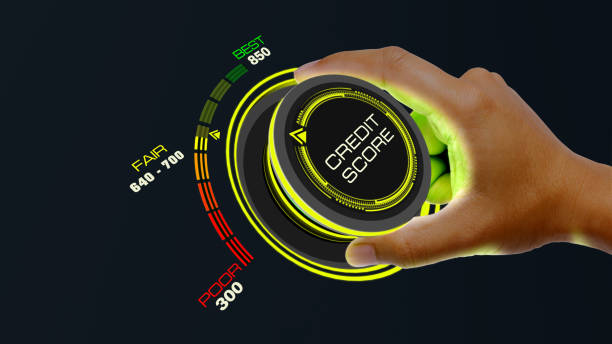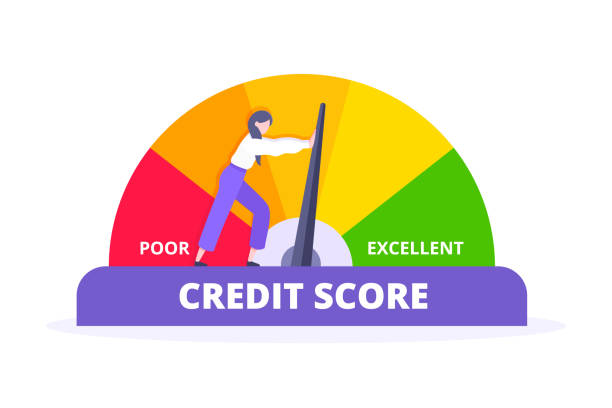Credit Score – Why It Is Important and How to Build It

Are you thinking of buying a house? Do you want to buy a car? Are you looking to open a coffee shop? You may need financial assistance for big dreams, and to get financial help, you will need a good credit score. Even if you have never taken out a loan, you must have heard the term credit score.
It is a number assigned to you based on your financial habits. It shows how creditworthy you are when it comes to financial obligations. The higher the credit score, the higher the creditworthiness. Having a fair credit rating is vital to avail yourself of lower interest rates.
A credit score range is from 850 to 300, while an average credit score is 675. It means you can borrow money at lower interest rates as long as your credit score is up to this level or above.
There are various factors that contribute to deciding your credit scores, such as payment history, length of credit history, credit mix, new credit, and the borrowed amount. This blog covers all relevant questions related to credit scores, so you better understand why it is essential.
Why do you need a Credit Score?
The most important reason to have a good credit score is you will be able to borrow money at attractive interest rates. As your credit rating reflects your creditworthiness, your lender will trust you.
If you do not have a credit history, you should try to build it by taking out a credit builder loan. Your lender will inform credit reference agencies of your on-time payments when you pay down the entire debt.
Note that having no credit history is as equally bad as having a poor credit score because, in both cases, a lender cannot trust if you will make payments on time. If you have a credit history, you will be able to avail of emergency loans like instant loans for the unemployed at better interest rates.
What does affect your Credit Score?
Just timely payments of a debt are not enough to build a strong credit rating. You need to understand each factor contributing to your credit score. Following are the factors that play a paramount role in deciding your credit rating:
- Payment history
Credit reference agencies will see if you have been paying your debts on time. It accounts for 35% of your credit rating. If your poor credit score is the result of late payments, you will unlikely qualify for a car loan or a mortgage.
- Age and types of credit
Debts over a span of years contribute to your credit rating, provided you have been making payments on time. This indicates that you stick to your payments despite financial fluctuations. For instance, installment loans with no credit check direct lenders only are to be paid back over a couple of months. These loans can contribute to the building of your credit score. Further, your credit score estimation also depends on the type of credits you owe. If you have a different kind of debt, it proves your ability to handle multiple types of debts.
- Credit utilization ratio
Another factor is the credit utilization ratio. It indicates how much balance you have on your credit card. The optimal ratio is up to or less than 30%. Otherwise, lenders will deduce that you rely on debts every time for your expenses.
- The total amount of debt
Credit reference agencies will determine your credit score based on the total amount of money you owe. The higher the owed amount, the lower the credit score. It is crucial to have as little debt as possible. Otherwise, lenders will think you do not earn enough money to meet your regular expenses.
- Recent credit inquiries
Latest hard search footprints can also affect your credit score. Each inquiry pulls five credit points, and they show up for two years. If they are six months old, they will not affect you, but recent inquiries can lower your credit score.
How to check your credit score
You never know which credit bureaus your lender will contact to get your credit report. Therefore, you should check your credit score with all three reference agencies. You can get a free copy of your credit file from all three agencies once a year. By looking into your credit report, you can see if there are any errors that you should get fixed. You can check your credit score as many times as possible by paying a nominal fee.
What to do if your report has errors
Your credit file may have a lot of errors, and it is not shocking at all. You must know how to dispute them.
There are various types of errors that you can see on your report, from identity errors to data management errors, balance errors, and incorrect reporting. When you find any errors, you should inform credit reference agencies and dispute them. They will investigate it and fix all errors.
How to improve your credit score

If you have a less-than-stellar credit rating, you should fix your credit rating. Though you can borrow money despite a poor credit score, you will end up paying very high-interest rates.
Therefore, it is suggested to improve your credit score before you take out an auto loan or a mortgage.
- Ask for increasing your credit card limit
If you use your credit card more often, you should seek a card with a higher balance. You should apply for a card with a higher limit or ask for an increase in your current card. With an increased limit, your credit utilization ratio will go down.
- Pay your bills on time
The next thing you should do is to pay your bills on time. It is not just about debt payments and credit card bills. But you should also pay your energy bills and rent on time. Some vendors report credit reference agencies of your late payments. Paying bills on time will boost your credit score.
- Have different types of debts
You should try to manage different types of credit, such as credit builder loans, credit cards, different kinds of installments loans, etc. Having a mix of debt will suddenly do up your credit file.
- Do not close old accounts
If you have multiple credit cards that you have not been using for a significant time period, you can decide to close all of them. Do not be impetuous because your debt-to-income ratio will suddenly hike by doing so.
Let your old accounts be open. If you are paying fees on them, it is intrinsic to see it does not restrict your buying power much.
- Stay on top of your expenses
Budgeting can help you stay organized with your expenses. Use a budgeting app or a spreadsheet to track your costs so you do not have to borrow money to meet your regular expenses.
In fact, budgeting can help you build an emergency cushion for unforeseen expenses. This can help you tide over without taking on a large debt.
The bottom line
It is imperative to maintain a good credit score as this helps you borrow money at attractive interest rates. If you have no credit rating or a poor credit score, follow the tips mentioned above to create a healthy credit file.






